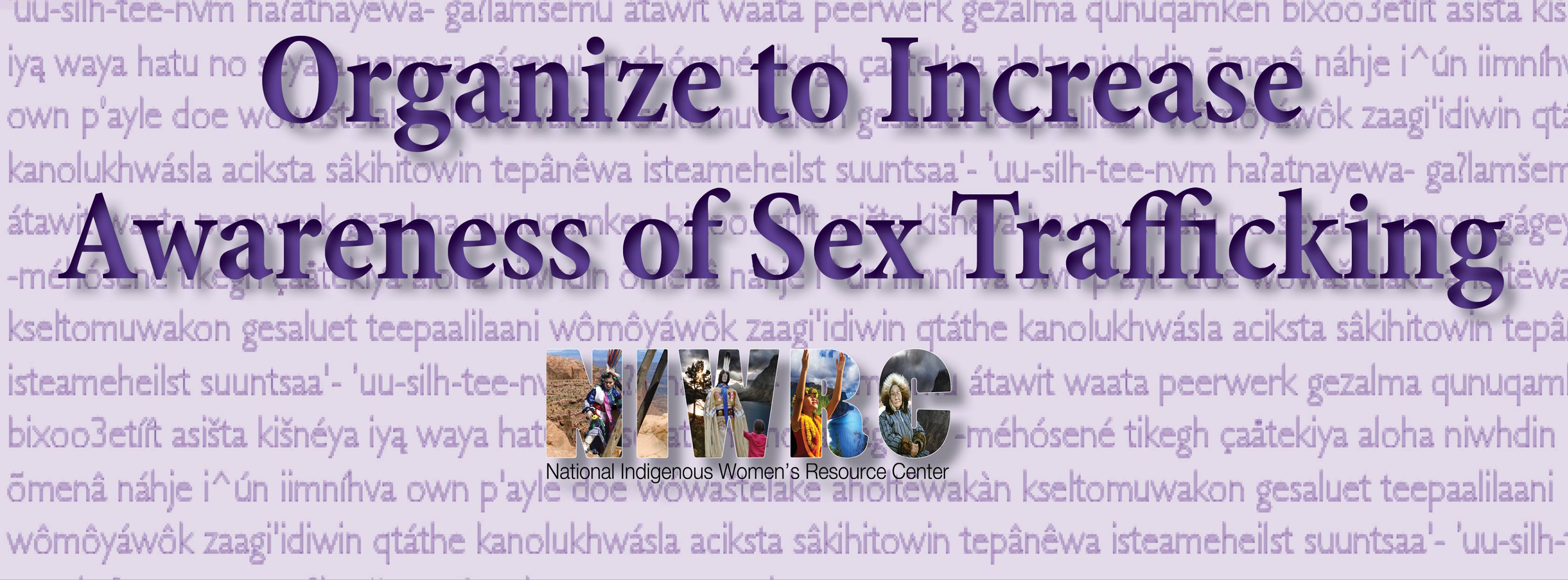NIWRC Recognizes January as Stalking Awareness Month and Slavery and Human Trafficking Prevention Month

As we, the National Indigenous Women’s Resource Center, recognize the month of January as both Stalking Awareness Month and Slavery and Human Trafficking Prevention Month. A long and brutal history underlies today’s disproportionate rates of intimate partner violence against Native women, as well as the targeting of Native women by sex traffickers. Each and every Native person has the fundamental right to be and feel safe in our own homes and communities.
What exactly is stalking and human/sex trafficking?
Stalking is a pattern of repeated and unwanted attention, harassment, contact, or any other course of conduct directed at a specific person that would cause a reasonable person to feel fear. NativeLove is Healthy Love. Stalking and pressure to know where you are all the time is just NOT healthy love. Stalking is serious, often violent, and can escalate over time. Stalking is unpredictable and dangerous. No two stalking situations are alike. There are no guarantees that what works for one person will work for another, yet you can take steps to increase your safety.
Under federal law, sex trafficking is: the recruitment, harboring, transportation, provision, or obtaining of a person for the purpose of commercial sex act, in which a commercial sex act is induced by force, fraud, or coercion, or in which the person induced to perform such act has not attained 18 years of age. (22 U.S. Code §7102). Much of what we know about sex trafficking of Native women and youth was published in Canada. A qualitative study in 22 Canadian communities received reports that 90% of children in the sex trade were Native children (Kingsley & Mark, 2000).
There is a very small, fairly recent body of empirical research on Native women and youth forced or tricked into prostitution by sex traffickers in the U.S., but all of it was based in Minnesota. In 2008, the Minnesota Indian Women’s Resource Center (MIWRC) commissioned a report on “what is known so far” about the sex trafficking of American Indian women and girls in Minnesota. The report was published in 2009, titled Shattered Hearts: The commercial sexual exploitation of American Indian women and girls in Minnesota (see Pierce, 2009). Shattered Hearts drew on Canadian research and included round table discussions with tribal and urban Indian advocates as well as secondary analysis of youth homelessness and other risk behavior data. The Shattered Hearts study also reported data from sexual exploitation risk assessments done at intake with girls and adults entering two of MIWRC’s social services programs.
We are continuously inspired by the efforts in our Tribal communities and by Tribal governments to increase safety and protections for our Native people and are honored by the support we can provide through NIWRC by way of technical assistance, training and policy development. Through our work, our goal has been and will continue to be supporting the sovereign rights of our Tribal Nations to increase safety for their citizens and preventing future acts of violence against the most vulnerable among us—Native women and children.
We humbly ask all advocates, allies, media and community members to join Thursday, January 11thto recognize National Human Trafficking Awareness Day sharing our digital postcards (attached to page) and using #HumanTrafficAwarenessMonth on your social media and to bring awareness to the issue.
There is much work to be done to restore safety and sovereignty to our Tribal Nations, and we are honored to be joined with you in this collective movement.
Resources for Stalking and Human Trafficking:
· DOWNLOAD NIWRC's Stalking & Human Trafficking digital postcards from this page and share on social media using #HumanTrafficAwarenessMonth.
· Please visit our Winter Edition e-newsletter, Advocate! Beyond the Shelter Doors! for more information and resources during January Stalking and Human Trafficking Awareness Month.
· For information, resources, referrals or to report a potential case of human trafficking please contact the National Human Trafficking Resource Center hotline at 1-888-373-7888. Or text HELP to: BeFree (233733).
· The StrongHearts Native Helpline – 1-844-7NATIVE (762-8483) – can assist in navigating difficult conversations of intimate partner sex trafficking.
· During National Slavery and Human Trafficking Prevention Month (January), see the Human Trafficking Special Feature for information and resources from the Office of Justice Programs and other federal sources.
Lucy Simpson
Executive Director, NIWRC




